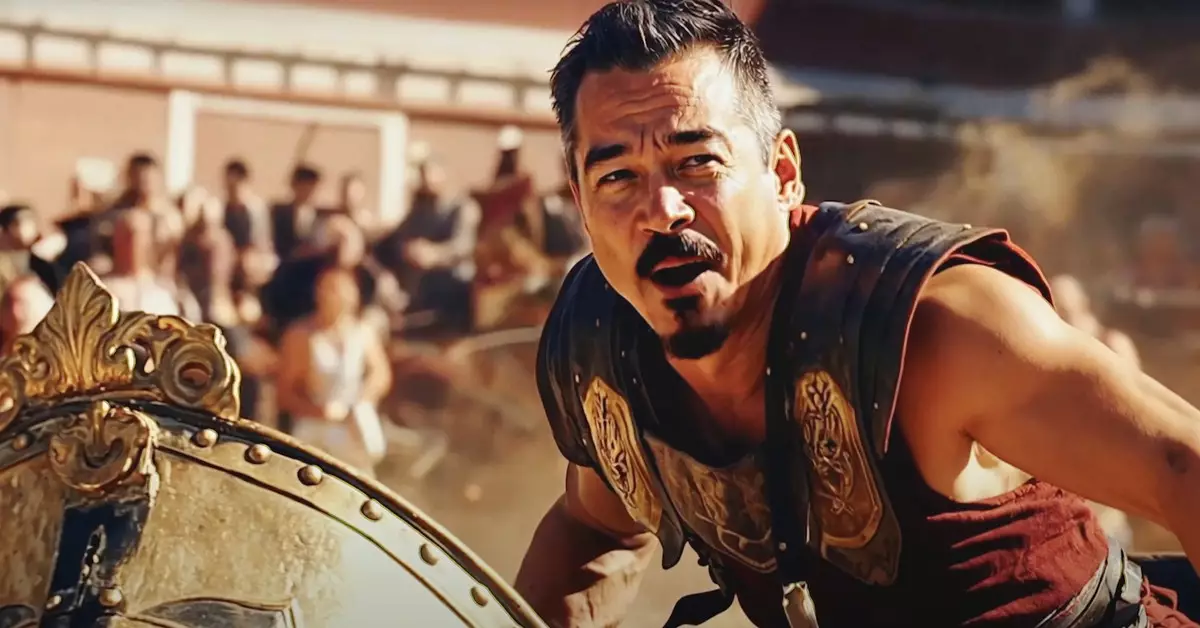As our digital world increasingly integrates artificial intelligence, the entertainment industry faces a major transformation. Recently, TCL made a splash with the introduction of several AI-generated short films on its TCLtv Plus platform. This article critically examines these new creations, evaluating their strengths and weaknesses while considering what this means for the future of storytelling and animation.
A New Frontier in Animation
TCL’s recent foray into AI-generated films, particularly following the release of “Next Stop Paris,” is emblematic of a broader trend in the digital media landscape where technology attempts to penetrate the creative realm. “Next Stop Paris,” previously likened to a hyperbolic take on a Lifetime movie, drew substantial criticism for its execution. Critics highlighted peculiarities like uncanny character movements and flat expressions, leading many to speculate whether this was a one-off experiment. Yet, the surprise debut of five additional films has opened the floodgates to a deeper analysis of the potential and limitations inherent in AI-generated content.
Despite marginal improvements in animation quality in the new films, they frequently remind audiences of AI’s current inadequacies. Viewers have become accustomed to the idea that exciting technology can yield groundbreaking results, yet AI-generated animation often falls short. Instead of riveting storytelling, audiences are presented with disjointed narratives and underwhelming visuals. Even more concerning is the question of how much of the narrative substance is compromised when relying heavily on algorithms and machine learning systems.
For instance, one notable short film echoes Ray Bradbury’s haunting tale “All Summer in a Day,” presenting a young girl desperate to glimpse the sun on her desolate planet. The narrative, while rich in potential, disintegrates into confusion, featuring illogical sequences that leave viewers perplexed. The protagonist’s escape route through a school’s sewers becomes a chaotic endeavor, undermining the emotional gravitas the setting initially suggests. Instead of elevating the narrative, the AI’s contribution turns it almost nonsensical, prompting viewers to question the fidelity of AI in producing coherent storylines.
Apart from narrative challenges, another interesting aspect of TCL’s films is their stylistic approach. For example, “Project Nexus” attempts a fresh direction by opting for more abstract character designs. While it could have fostered creative visuals, it instead leads to another bout of disappointment, as the smoothness of voice acting fails to compensate for stiff animation. This film presents itself as an engaging prelude to a larger story, yet the lack of substance leaves much to be desired.
Moreover, the docufiction style of one entry, featuring the story of Dr. Warren Brown’s harrowing experience with an avalanche, introduces an unprecedented hybrid narrative approach. Mixing AI imagery with real human interaction, it could serve as a compelling tale of survival and adversity. Unfortunately, the AI-generated elements derail the dramatic tension, offering disturbing visual effects that many viewers will likely find unpalatable, such as depictions of bodily harm that stray too far into surreal territory.
Numbing Humor and Absurdity
The comedic attempts in these films also merit scrutiny. In “The Audition,” we see a concept that could have served as an exploration of the absurdity and futility intertwined with Hollywood casting calls. However, what begins as a humorous portrayal rapidly devolves into tedious iterations of AI-generated transformations that feel more gimmicky than insightful. In a way, it’s as if the creators wanted to mock the absurdity of the industry, but the execution simply falls flat and leaves little room for genuine laughter.
Similarly, another entry explores themes of physical decline and emotional alienation through a character experiencing a grotesque metamorphosis into a slug due to arthritis. While such metaphorical interpretations could yield profound conversations about aging and isolation, the execution results only in bewilderment and discomfort, drawing attention away from any intended thematic depth.
Ultimately, TCL’s ambitious venture into AI-generated films serves as a fascinating, albeit troubling, case study in the evolving landscape of digital storytelling. Their work sparks critical conversations about the future of animation and narrative creation, as we grapple with questions about the authenticity, quality, and emotional resonance of AI-generated art. As this technology develops, audiences will remain keenly aware that mere novelty is not enough; genuine storytelling—one that stirs emotions and captivates imaginations—must always prevail. As TCL and others continue their exploration, the industry will undoubtedly face the challenge of harnessing AI without sacrificing the artistry that defines our shared human experience.

